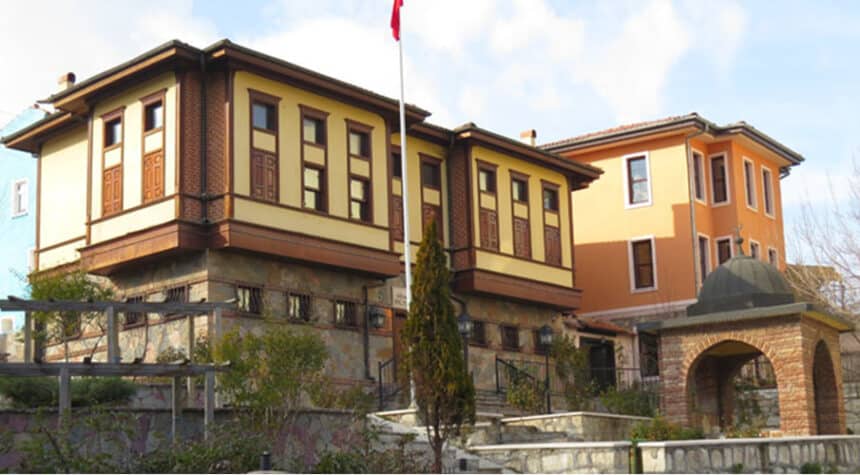The house of Evliya Çelebi in Kütahya, now used as a museum
Evliya Çelebi (25 March 1611 – 1682) as a renowned Ottoman explorer, traveler, and writer, who is celebrated for his vast travelogue, the Seyahatname, which is a detailed account of his extensive travels throughout the Ottoman Empire and beyond.
Life and Career
Born in Istanbul on 25 March 1611, Evliya Çelebi was the son of a wealthy family and received an education befitting his status. His father, Dervish Mehmed Zilli, was a judge and a scholar, and Evliya learned Arabic, Persian, and Turkish languages, as well as the Islamic sciences.
In 1631, at the age of 20, Evliya set out on his first journey, which would last for more than 40 years. He traveled extensively throughout the Ottoman Empire, visiting cities, towns, and villages, and documenting everything he saw and experienced in his journals. He also ventured beyond the Ottoman Empire, traveling to places like Egypt, Sudan, Ethiopia, and Iran.
Evliya’s travels were motivated by his curiosity and desire to learn about different cultures, but he was also tasked with collecting information about the Ottoman territories and its people for the Ottoman government. He was appointed to several official positions throughout his travels, including a post as the chief scribe in the Ottoman court, and his knowledge and experience of the Ottoman territories made him a valuable asset to the government.
In addition to his travels, Evliya was a prolific writer, and his Seyahatname, which he worked on throughout his life, is considered one of the most significant works of Ottoman literature. The Seyahatname is a detailed account of his travels and includes descriptions of the people, places, and cultures he encountered, as well as his observations on history, politics, and religion. It is a valuable historical document that offers a unique perspective on the Ottoman Empire and the wider world during the 17th century.
Evliya Çelebi died in 1682 in Cairo, Egypt, while on a pilgrimage to Mecca. His legacy continues to inspire travelers, explorers, and writers today, and his Seyahatname remains an important cultural and historical document of the Ottoman Empire.
Award and Legacy
His legacy has endured and he is widely recognized as one of the greatest travel writers in history. His Seyahatname is considered a masterpiece of Ottoman literature and an important historical document that provides insights into the social, cultural, and political life of the Ottoman Empire in the 17th century.
Evliya’s writings have had a significant impact on subsequent generations of writers and scholars, both in Turkey and around the world. His vivid descriptions of the places he visited and the people he encountered continue to fascinate and inspire readers today.
In addition to his literary legacy, Evliya’s travels and writings have also contributed to a deeper understanding of Ottoman history and culture. His works have been studied by scholars of Ottoman studies, and his accounts of the cities, towns, and villages he visited have been used to reconstruct the social and economic conditions of the Ottoman Empire.
Overall, Evliya Çelebi’s legacy is one of curiosity, exploration, and cultural exchange. His contributions to literature and history continue to be celebrated and studied today, and his legacy serves as an inspiration to travelers, writers, and scholars around the world.
On 25 March 2011, Google celebrated 400th Birthday of Evliya Çelebi with a doodle.

